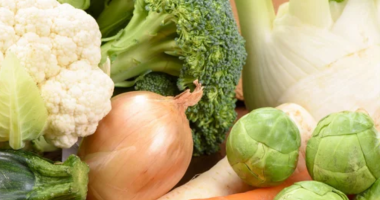The #1 Reason You Feel Sleepy After Drinking Soda or Fizzy Drink. Apparently, more than one factor causes you to feel sleepy after soda consumption. But among them have the lead which is the sugar or high sugar content. You can call it sugar crash if you prefer.
Soda is loaded with sugars, often in the form of high fructose corn syrup. These sugars quickly enter your bloodstream, triggering a spike in blood sugar levels. Your body responds to this spike by releasing a surge of insulin, a hormone that helps drive sugar into your cells for energy. But this initial sugar rush is temporary. Once the sugar is used up, your blood sugar levels plummet, leading to a state of hypoglycemia.
This hypoglycemia manifests as a range of symptoms, including tiredness, fatigue, difficulty concentrating, and even irritability and thus leave you feeling drained of energy.
ALSO READ: Side Effects of Sugary Soda Fizzy Drinks to Be Wary of
More Reasons Why Soda Make You Feel Sleepy
Caffeine
Caffeine, a common ingredient in many sodas, initially blocks the effects of adenosine, a brain chemical that promotes sleepiness. This is why you might feel a temporary energy boost after drinking soda. However, the effect of caffeine is temporary. When it wears off, the adenosine receptors become even more sensitive to the buildup of adenosine in your brain, leading to a stronger urge to sleep. This increased sensitivity is referred to as adenosine rebound and can contribute to feeling even sleepier than before you drank the soda.
With this second point, Isn’t it clear why sleep creeps in moments after drinking soda?
The presence of sugar and caffeine in soda creates a perfect storm for sleepiness. The initial energy boost fades, leaving you feeling drained and lethargic. This effect can be particularly pronounced if you’re sensitive to caffeine or sugar, or if you drink soda late in the afternoon or evening when your body is naturally preparing for sleep.
Dehydration
Soda, especially caffeinated ones, act as diuretics. This means they increase urine production, causing you to lose more fluids than you take in. This fluid loss leads to dehydration, even if you don’t feel immediately thirsty. Mild dehydration can affect your energy levels, making you feel tired and sluggish. Additionally, dehydration causes a drop in blood volume, making your heart work harder to pump blood throughout your body. This can further contribute to fatigue, especially in your brain, leading to that foggy, sleepy feeling.
Nutritional Deficiencies
Empty Calories: Sodas are packed with calories, primarily from sugars and artificial sweeteners. However, these calories offer minimal to no essential nutrients needed for sustained energy production. Your body needs vitamins, minerals, and complex carbohydrates for efficient energy metabolism. Lacking these crucial elements puts your body in a constant struggle to keep going, contributing to fatigue and lethargy.
Vitamin and Mineral Depletion: Soda depletes certain vitamins and minerals due to its diuretic effect and acidic nature. Potassium, magnesium, and B vitamins are particularly vulnerable. Potassium is crucial for regulating blood pressure and muscle function, while magnesium plays a vital role in energy production and sleep regulation. B vitamins are essential for converting food into energy and maintaining cognitive function. Deficiencies in these nutrients can exacerbate the sugar crash and lead to various symptoms like fatigue, difficulty concentrating, and even insomnia.
Reduced Nutrient Absorption: Sugary drinks like soda can interfere with the absorption of other nutrients from food. The high sugar content triggers a rapid insulin release, which can impair the absorption of essential minerals like calcium, iron, and zinc. These minerals are vital for overall health and energy production. Their deficient absorption further diminishes your body’s ability to produce sustained energy, making you feel tired and sleepy.
Gut Health Disruption: The artificial sweeteners and preservatives in soda can disrupt the delicate balance of bacteria in your gut microbiome. This imbalance can lead to digestive issues like bloating, gas, and constipation. Poor gut health affects nutrient absorption, further exacerbating fatigue and sleepiness. Additionally, gut health is linked to sleep quality, with chronic gut issues impacting the body’s natural sleep-wake cycle.
Cravings and Overeating: The sugar crash caused by soda often leads to cravings for high-calorie, sugary foods. Overindulging in such foods provides only temporary energy spikes, followed by further energy dips and fatigue. This cycle of cravings and overeating can disrupt your sleep patterns and contribute to daytime sleepiness.
DON’T MISS: 8 Best Foods to Help You Sleep
The information in this article is backed by research findings from reliable sources [1, 2, 3] and the image used is from depositphotos









